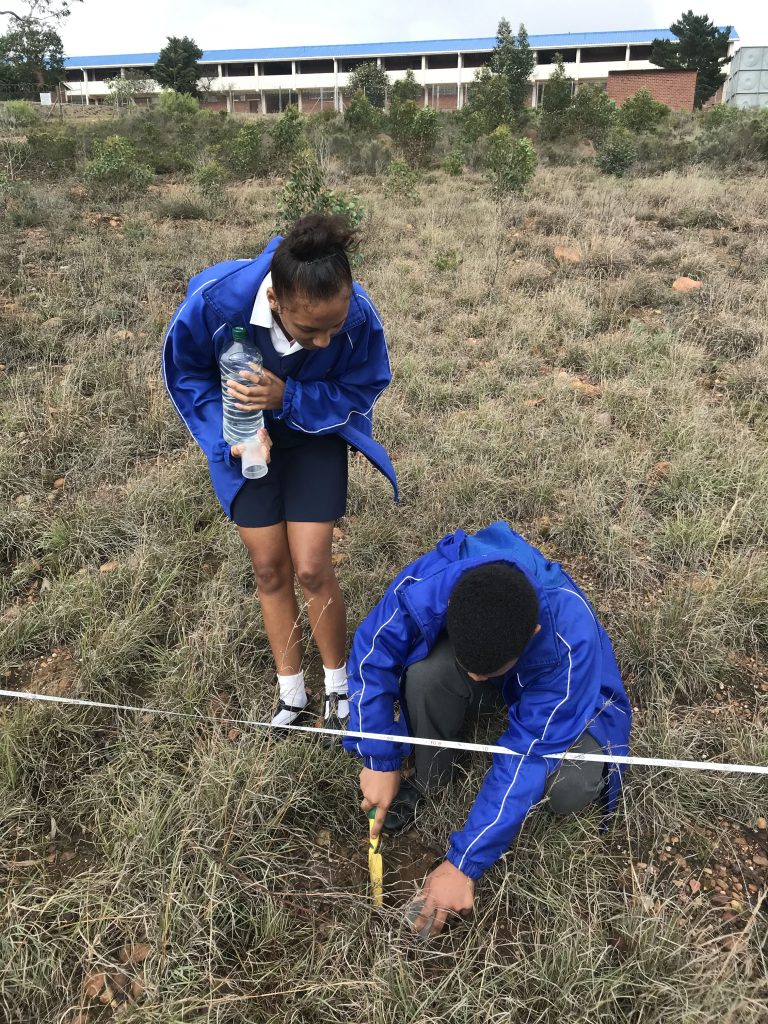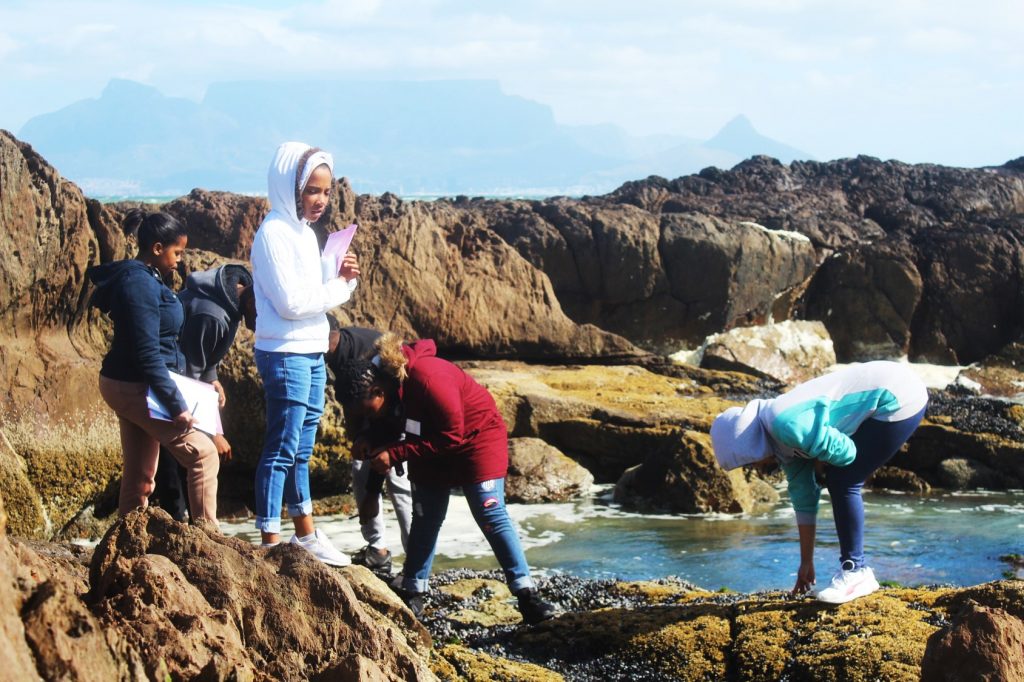Iimbovane’s efforts to deliver hands-on biodiversity education to the youth recently received a welcome boost, thanks to a generous donation from the Mapula Trust.
The Iimbovane Outreach Project is an education project of the Centre for Invasion Biology (C∙I∙B) and was established in 2006 to train Life Science teachers and learners at the Grade 10 level in biodiversity science by using the ants in their schoolyards.

Thanks to the support from the Mapula Trust, we project team will be able to expose approximately 1 200 Grade 10 learners from 17 schools in the Western Cape to biodiversity while helping them develop much needed practical science skills.
The project’s activities give participating learners a hands-on experiences with the setting up of sampling sites and the collection of biodiversity data which include the ants and plants species alongside the scientific community of Stellenbosch University.
But it goes further than that – through holiday programmes learners are invited for a weeklong campus visit during which they perform mini-research projects to explore environmental issues of our time.

“Engaging the learners in mini-research projects heightens their sense of wonder and prompts them to ask questions such as ‘how?’ and ‘why?’ The need to know more about how nature works allows learners to think critical about environmental topics. . When prompted to work together as in groups outside of class, learners often draw on skills they wouldn’t normally exhibit in a traditional classroom setting. For example, learners learn how to work together and communicate effectively with other learners to solve a research question,” says Londiwe Msomi, C∙I∙B Education Outreach Officer.
The Mapula Trust contribution will be used to support these holiday programmes, learner workshops, classroom lessons and sampling of schoolyards at participating schools. Life Science educators can also look forward to training opportunities to clarify the concept of biodiversity, its significance and more generally to improve the quality of biodiversity science teaching in classrooms.
“Iimbovane is a one-of-a-kind project – it exposes the South African youth to the treasures of our natural environment while letting them apply their theoretical knowledge about biodiversity and the science method in a real-life setting as opposed to just reading about it in textbooks. Certainly, the most valuable educational impact of the project is the practical science skills that the learners gain and their reflection on those skills,” explains Iimbovane project manager, Dorette du Plessis.